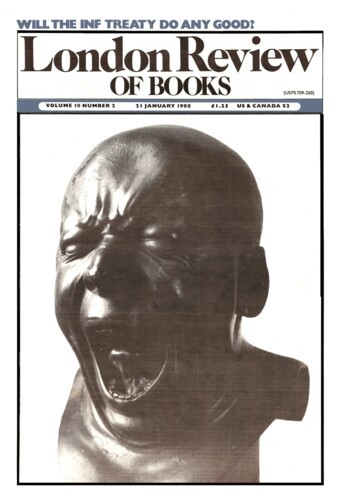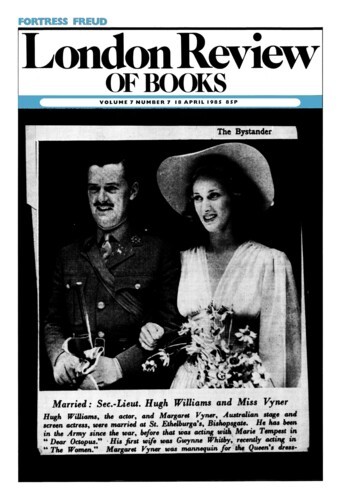Protocols of Sèvres
Keith Kyle, 21 January 1988
At first sight, The Failure of the Eden Government suggests the beginning of a new series to be continued with The Failure of the Macmillan Government, The Failure of the Wilson Government, The Failure of the Heath Government and so forth. As the 30-year rule uncovers the frailties of each in turn of a not particularly glorious row of administrations, opportunities will accumulate. Besides its fairly average quota of what might be called ordinary failures – failure to anticipate problems or failure to act on problems anticipated – the Eden Government will go down in history for the resounding fiasco of its handling of the problem of the Suez Canal. The story has a certain tragic grandeur because Eden had hitherto enjoyed a glamorous and successful career in the field of foreign affairs; it was a massive misjudgment in his own area of expertise that brought him down. Although Richard Lamb says that ‘Eden’s premiership foundered solely because of the Suez affair’ (which begs the question, much discussed at the time in the press, of whether it would not otherwise have soon foundered on something else), his book deals with the record of the Government as a whole. Half of it concerns Suez, its Middle Eastern antecedents and its political and financial consequences; the rest deals with domestic affairs and with other foreign issues.’





